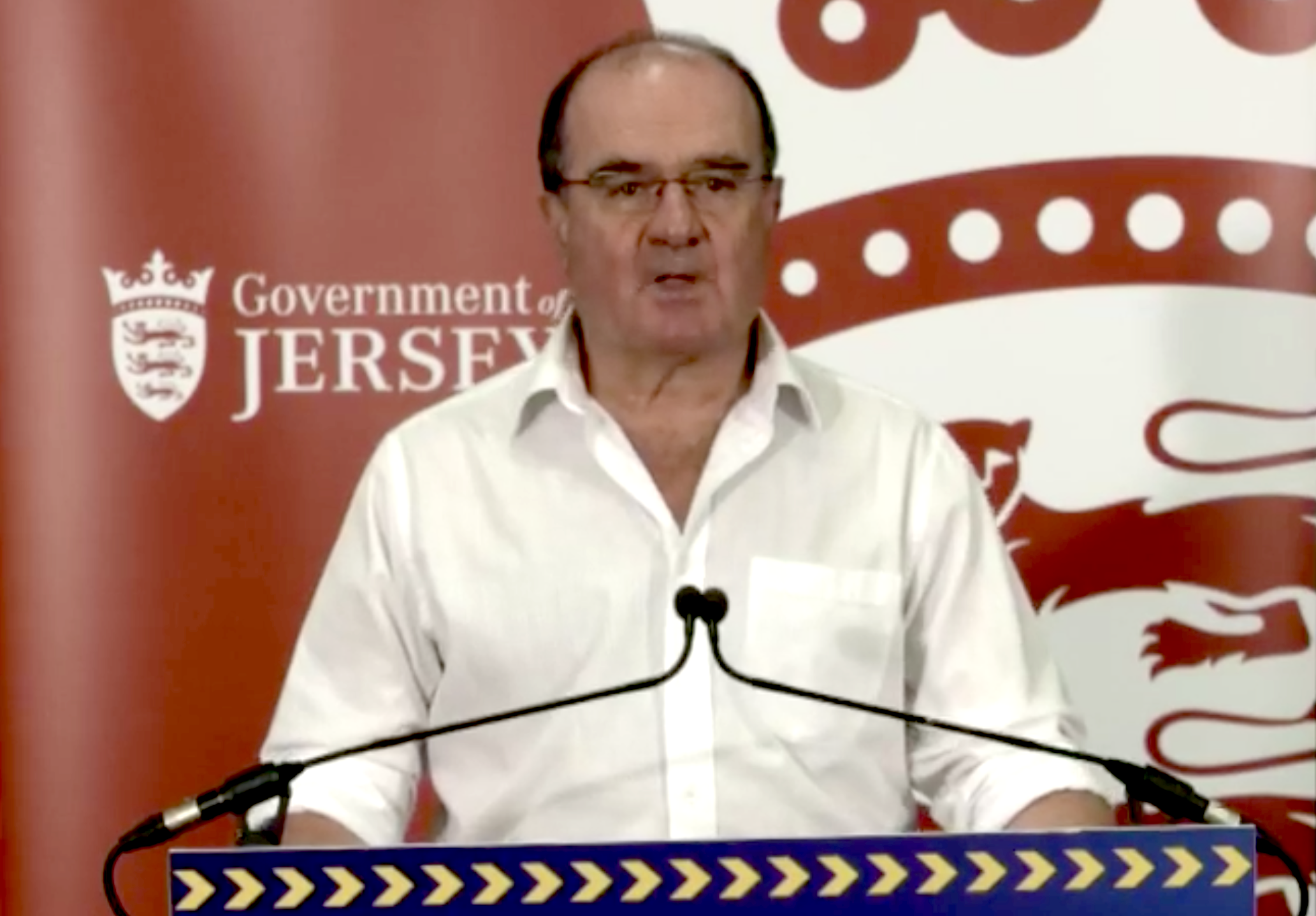


The Government is refusing to disclose key documents showing Ministers made health and economic decisions that affected the lives and livelihood of thousands of islanders during the pandemic.
In a heavily delayed response to a request made under the Freedom of Information Law by Express in January, officials this week concluded that releasing minutes of Competent Authority Ministers’ meetings would not be in the public interest as it would compromise their “safe space” in which to make decisions and “reveal potential disagreements on details of policy.”

Pictured: STAC Minutes in January reflected how Ministers didn't consult the panel of medical experts on key covid decisions.
The meeting minutes of the Scientific and Technical Advisory Cell (STAC) were made public earlier this year a majority of States Members voted in favour of releasing them.
While the expert group has been responsible for advising the Government on its crisis decision-making throughout the pandemic, the final decisions have always rested with ‘Competent Authority Ministers’ (CAM): the Chief Minister, Economic Development Minister, External Relations Minister, Home Affairs Minister, Infrastructure Minister and Health Minister. The Treasury Minister and Education Minister are also occasionally invited to attend meetings.
STAC minutes released in January reflected how this Ministerial group had failed to consult the panel of scientific and medical experts on key covid decisions including the initial guidance on festive gatherings, which was later subject to a U-turn. The lack of consultation left one STAC member questioning the group's purpose.
The documents also revealed the frustrations of the island’s top pandemic medic, Dr Ivan Muscat, and other STAC members that CAM had decided to relax travel restrictions for ‘green zone’ travellers against advice – one of the factors believed to have played a part in the sharp spike in covid cases before the New Year.

Pictures: STAC minutes showed Dr Ivan Muscat's frustration that CAM Ministers had decided to relax travel restrictions against green zone travellers.
Following the release of the cache of STAC minutes, Express made an application on 21 January for the CAM minutes from the past year to be released, to provide an insight into Ministers’ thinking at the time of such crucial decisions.
Express also requested minutes of the meetings of the Emergencies Council – Jersey’s equivalent of COBRA – and asked for the full agendas of Council of Ministers’ meetings.
Under the Freedom of Information Law, the Government must endeavour to provide information “no later than the end of the period of 20 working days”.
On 11 February, the Freedom of Information Unit said in an update that the Government was working on the request and “applying redactions where necessary.”
On 10 March, the Unit advised that there had been a delay, with the response then due on 8 April.
This week, around a week after that due date, the Government then confirmed that it would not be releasing any of the requested information – despite having previously been working on doing so in redacted format.
It said that it had applied a ‘Public Interest Test’, and had identified the following reasons in favour of releasing CAM minutes:
But these were said to be outweighed by other considerations.

Pictured: The Government's response on CAM minutes only gave broad details about discussions, such as the fact they involved "travel and borders."
“The nature of these meetings is confidential, in line with longstanding and fundamental conventions in Jersey… Disclosing the workings and discussions of ministerial committees could reveal potential disagreements on details of policy and even policies themselves which, if made public, would undermine consensus driven decision-making as outlined in the “Code of Conduct and Practise for Ministers and Assistant Ministers” (2018) and hence undermine the working of Government,” the response reasoned.
It continued: “Ministers must be at liberty to express their views frankly and candidly, without the fear of their views being automatically or even potentially reported in public, otherwise they might express their views less vigorously or more circumspectly, or even feel restrained from voicing them at all, for fear that they will be represented in the media, now or in the near- future, in a way that is damaging to either themselves, the government, or the Island. This is especially the case during the “live” development of policy, when a “safe space” within which discussions takes place helps with the formulation of good decisions.
“It is the case that Ministers in discussions should feel free to raise and examine all options, even those that may feel on subsequent consideration wholly inappropriate, without concern that even raising a matter could open the Minister to censure or criticism.
“The risk, if publication takes place, is that discussion between Ministers (and officials) become stilted and constrained, known as the “chilling effect”, by the knowledge that such discussions could be made public and decision-making would not have the benefit of the full range of freely expressed opinions to inform it.”
It added that publishing the minutes may also be to the detriment of future record-keeping: “Indeed, discussions might take place increasingly or wholly outside formal recorded meeting, undermining good governance and record-keeping, if minutes of formal meetings are published (and a similar position applies to the publication of agendas, especially during a pandemic, when a “safe space” is crucial).”

Pictured: The reasons given for not releasing the minutes of the CAM discussions, which determine rules affecting islanders, was that Ministers would feel constrained in their conversations with the knowledge they would be made public.
While the Government declined to provide the requested minutes and agendas, it did, however, provide a list of general topics discussed:
“Items discussed at the Competent Authority and Emergencies Council meetings included discussions on legislation and public health guidance, business and community support measures, travel and borders, testing and vaccination programme, operational readiness, including schools and health services, and a range of other issues, including wider strategic public health discussions, as part of the government’s response to the pandemic and in the context of available statistical information.
“Items discussed at the Council of Ministers included preparation for Assembly sittings, and a wide range of policy matters, including the response to the pandemic, environmental and climate policy, including the Island Plan and carbon neutrality, children and education policy, justice policy, health policy, transport policy, migration policy, external relations matters, including Brexit, financial and performance matters, including the Government Plan and the Annual Report, major projects, including the hospital and office accommodation, and a range of operational and risk management matters as part of progressing government business.”
It also said that, following Express’s request, consideration is “currently being given to regular reviews to ascertain the ability to move items to the public `A’ agenda, however no firm decisions have been made and it is not considered reasonable to withhold this response until the outcome of those discussions is known.
“In respect of the Council of Minister’s minutes, A minutes are published, and again, consideration will be given to transferrable items from 2020 to the A minutes by 30th June 2021.”
It concluded that its approach “delivers a reasonable balance, under the Law, between the need for transparency and accountability, and good decision-making by public authorities.”
Express will be challenging this refusal to make Ministerial meeting minutes public.
Comments
Comments on this story express the views of the commentator only, not Bailiwick Publishing. We are unable to guarantee the accuracy of any of those comments.